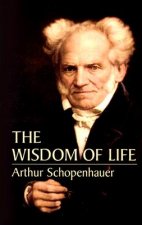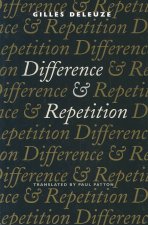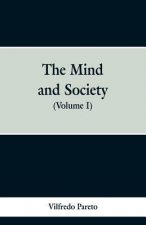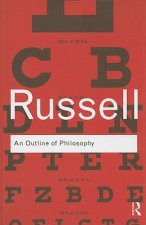
Kod: 07090290
Genealogy, From Nietzsche to Foucault - Tracing the History of the Present
Autor Mary Shoemaker
Since the nineteenth century we live subject to ever-quickening social change. To deal with this challenge, Friedrich Nietzsche recommended employing purposeful historical analyses that could explain the present and control the fu ... więcej
- Język:
 Angielski
Angielski - Oprawa: Miękka
- Liczba stron: 136
Wydawca: VDM Verlag Dr. Mueller E.K., 2008
- Więcej informacji o książce

Zobacz książki o podobnej tematyce
-

States, Nonstate Actors, and Global Governance
211.38 € -

BOOSEY HAWKES VIOLA ANTHOLOGY
21.45 € -17 % -

Die Wettbewerbsfähigkeit von KMU im Lichte des Bundesvergabegesetzes 2006
68 € -5 % -

200 Crazy Clever Kakuro Puzzles - Volume 2
17.42 € -

Seminary At 100
21.65 € -
![Gems of Irish Scenery, [Photographs, ] with Descriptive Letterpress. Gems of Irish Scenery, [Photographs, ] with Descriptive Letterpress.](https://media.libris.to/jacket/08045832t.jpg)
Gems of Irish Scenery, [Photographs, ] with Descriptive Letterpress.
16.01 € -19 % -

Feasting on the Word
40.70 € -19 % -

Entwicklung von Lernprogrammen anhand der Grundlagen der Montessori-Pädagogik
49.36 € -4 % -

Effects of CSR on Customer Retention in Different Sectors of Pakistan
46.54 € -9 % -

Japanese Civilization, its Significance and Realization
335.11 € -

Nachwuchs Furs Management
66.69 € -

Mothering, Education, and Ethnicity
204.12 € -

Pedestrian Evacuation from Networks
75.36 € -

Boulevardisierung der Wissenschaftsberichterstattung im Fernsehen?
68 € -5 %
Bon podarunkowy: Radość gwarantowana
- Podaruj bon o dowolnej wartości, a my się zajmiemy resztą.
- Bon podarunkowy dotyczy całej naszej oferty.
- Możesz wydrukować elektroniczny bon z e-maila a następnie przekazać go obdarowanemu.
- Ważność bonu wynosi 12 miesięcy od daty wystawienia.
Więcej informacji o Genealogy, From Nietzsche to Foucault - Tracing the History of the Present
Za ten zakup dostaniesz 165 punkty
 Opis
Opis
Since the nineteenth century we live subject to ever-quickening social change. To deal with this challenge, Friedrich Nietzsche recommended employing purposeful historical analyses that could explain the present and control the future. Building on Nietzsche's example, Michel Foucault in the twentieth century developed his own way of presenting the past in order to seve the living present. Foucault's analyses were intended to be genealogies, that is, family trees of our major social and political institutions, like churches, schools, hospitals, and prisons.§ The focus of this study is Foucault's most successful and illuminating genealogy, DISCIPLINE AND PUNISH:THE BIRTH OF THE PRISON. In it he demonstrates his method and shows how understanding the facts of the past in their interaction is the thread which can help us move ahead in the present. How did the edifice of laws, the courts, and the prison system come into being? How did it grow so powerful? We may not agree with Foucault in every detail, but we know that the prisons are too often the causes of crime, rather than its solution. He explains why. Since the nineteenth century we live subject to ever-quickening social change. To deal with this challenge, Friedrich Nietzsche recommended employing purposeful historical analyses that could explain the present and control the future. Building on Nietzsche''s example, Michel Foucault in the twentieth century developed his own way of presenting the past in order to seve the living present. Foucault''s analyses were intended to be genealogies, that is, family trees of our major social and political institutions, like churches, schools, hospitals, and prisons.§The focus of this study is Foucault''s most successful and illuminating genealogy, DISCIPLINE AND PUNISH:THE BIRTH OF THE PRISON. In it he demonstrates his method and shows how understanding the facts of the past in their interaction is the thread which can help us move ahead in the present. How did the edifice of laws, the courts, and the prison system come into being? How did it grow so powerful? We may not agree with Foucault in every detail, but we know that the prisons are too often the causes of crime, rather than its solution. He explains why.
 Szczegóły książki
Szczegóły książki
Kategoria Książki po angielsku Humanities Philosophy
65.58 €
- Pełny tytuł: Genealogy, From Nietzsche to Foucault - Tracing the History of the Present
- Autor: Mary Shoemaker
- Język:
 Angielski
Angielski - Oprawa: Miękka
- Liczba stron: 136
- EAN: 9783836478021
- ISBN: 3836478021
- ID: 07090290
- Wydawca: VDM Verlag Dr. Mueller E.K.
- Waga: 212 g
- Wymiary: 151 × 228 × 12 mm
- Data wydania: 26. March 2008
Ulubione w innej kategorii
-

The Conspiracy Against the Human Race
16.01 € -11 % -

How to Think Like a Roman Emperor
16.61 € -12 % -

Built to Last
19.84 € -

Teachings of Don Juan
9.46 € -22 % -

Philosophy: A Complete Introduction: Teach Yourself
15.20 € -28 % -

Wisdom of Life
7.45 € -18 % -

The Essential Philosophical Works
5.43 € -26 % -

Oxford IB Diploma Programme: Philosophy: Being Human Course Book
68.30 € -

Nature
7.65 € -29 % -

Epistemology - An Anthology 2e
39.99 € -

Letters from a Stoic - The Ancient Classic
11.07 € -35 % -

Difference and Repetition
23.06 € -17 % -

Thus Spoke Zarathustra - The Philosophy Classic
11.07 € -35 % -

I Am a Strange Loop
16.31 € -29 % -

Story of Philosophy
9.26 € -28 % -

Antichrist
4.93 € -18 % -

Men Among the Ruins
19.84 € -22 % -

Monkey Business
15.20 € -24 % -

Calendar of Wisdom
21.25 € -26 % -

I am That
38.68 € -4 % -

Religion of Tomorrow
29.61 € -16 % -

Nietzsche and Philosophy
21.15 € -23 % -

Rick and Morty and Philosophy
15.91 € -23 % -

Machiavelli: The Art of Teaching People What to Fear
15 € -21 % -

Journey Within
15.30 € -19 % -

Illuminations
13.49 € -14 % -

Philosophy of Loneliness
21.15 € -1 % -

How I Met Your Mother and Philosophy
23.06 € -16 % -

Mind and Society
17.52 € -

Tripura Rahasya
14.20 € -16 % -

Human Happiness
8.25 € -28 % -

Upside down: a Primer for the Looking-Glass World
19.13 € -13 % -

Outline of Philosophy
18.13 € -14 % -

Art of Deception
16.21 € -14 % -

Margins of Philosophy
34.75 € -4 % -

Counter-History of the Present
30.22 € -

Meditations of Marcus Aurelius
12.99 € -9 % -

How the World Thinks
11.27 € -23 % -

From Bacteria to Bach and Back
18.73 € -18 % -

Mind's I
27.60 € -

The Story of Philosophy
11.07 € -4 % -

Musonius Rufus
14.80 € -1 % -

From Intellect to Intuition
14.10 € -1 % -

Omnibus Homo Sacer
100.34 € -3 % -

Philosophy of Freedom
33.64 € -19 % -

Philosopher's Toolkit - A Compendium of Philosophical Concepts and Methods, 3rd Edition
20.75 € -8 % -

Birth of the Clinic
15.81 € -21 % -

Intuition Pumps and Other Tools for Thinking
9.26 € -24 % -

Big Questions of Life
12.38 € -5 %
Osobní odběr Bratislava a 2642 dalších
Copyright ©2008-24 najlacnejsie-knihy.sk Wszelkie prawa zastrzeżonePrywatnieCookies



 Vrácení do měsíce
Vrácení do měsíce Zdarma od 49.99 €
Zdarma od 49.99 € 02/210 210 99 (8-15.30h)
02/210 210 99 (8-15.30h)